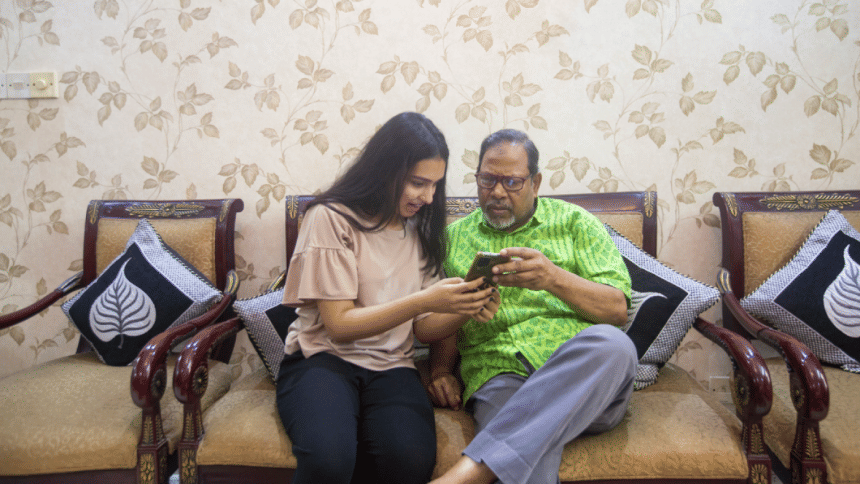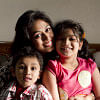The responsibility of taking care of ageing parents

My mother's idea of life coming full circle revolves around "parenthood". She likens herself to a real-life counterpart of Benjamin Button, stating that the older she grows as my parent, the more of a child she becomes.
"All parents grow old enough to be parented by their children at some point," my mother says. I thought her words were ridiculous at the time, but came to see the truth in them eventually, soon after my father's poor health left him bedridden.
When a person comes to realise that the responsibility of their parents' care rests with them, it can be quite distressing, regardless of the said person's age and maturity. A general "how to" handbook doesn't suffice as a preparatory measure, because not every household is the same. There are ailing parents to comfort, medical bills to be paid, and responsibilities to be divided among family members.
"I had a difficult time coming to terms with my mother's deteriorating health. Your relationship with your parents tends to change once you assume the role of your parents' caregiver. It was quite upsetting to see my mother unable to conduct daily activities like she once used to with ease," shares Zyma Thaseen, marketing manager of an electronics brand.
Your parents are asking for you at their hour of need, how do you respond?
For adults in this day and age, being able to devote all your time and resources to caring for your parents is no longer a question of selflessness, but seemingly a product of luxury. Every other person has a hustle or two to deal with, which further complicates the logistics of constantly tending to a parent. The commitment an individual is required to make has to be binding, demanding most, if not all, of their undivided attention towards elderly care.
"I'm currently preparing for my admission tests, as I want to get into a public university, but it's really competitive," says 17-year old Ahmed Faiza*, a former student of Rajuk College. "Most of my friends will also be applying to universities outside Dhaka. I can't do the same because studying far from home isn't an option. There would be no one to take care of my mom then, and she is in no condition to accompany me. Besides, if I live away from her, it would only add to her stress."
The moral implications of coming to terms with such a dilemma involve weighing responsibilities against ambitions, and societal expectations against personal choices. Young adults have plans for their future and lives of their own. Some plan on taking up their parent's role as breadwinner, while some work hard to further their career in a field they're deeply passionate about. Do we then attempt to determine the fairness in the parents' demands of their children, or in the children's decisions regarding their parents' care?
As previously stated in the article, parents only ask their children for assistance when their old age diseases confine them to the likes of beds, walking sticks, and wheelchairs. The expectation of the elderly is to grow old under their own roofs, in the comfort of their own beds, in the presence of family and loved ones. This is what brings them a psychological comfort of sorts, providing them with the willpower to endure whatever ailments their age has brought about. An elderly care facility can mimic just that, providing its residents with a sense of comfort alongside essential healthcare facilities such as various types of nursing care and nutrition assistance.
The senior care and housing industry in Bangladesh are still undergoing various stages of development in terms of facilities and workforce training. While the option of placing your elderly parents in a care facility is rather frowned upon in our country, it's important to acknowledge the feasibility that such establishments offer as a long-term solution.
The stigma surrounding care facilities largely stems from what might be misconstrued as an act of abandonment on the part of the children of the senior members in our community. Zyma spoke about dealing with the moral dilemma of seeking out caregiving services. She says, "When it comes to taking care of your parents, it's important to overcome the sense of guilt instilled in you by members of our community. You must acknowledge that it's completely fine to ask for help. I didn't arrive at this conclusion overnight. I'd constantly think if I'm somehow being a bad daughter for handing over some of my responsibilities to an outsider. I eventually realised that this decision helps in improving one's relationship with their ageing parents, where the individual in question is no longer forced to make sacrifices in their personal life."

As an alternative to care facilities, one can always opt to hire personal caregivers at home should their elderly parents find it entirely too difficult to adjust to living conditions at care facilities. However, as the elders in our community age, they might find it difficult to either bond with, or rely on people outside of their immediate family members. Hiring a professional from a caregiving agency can possibly result in elderly parents experiencing a sense of distress in their state of vulnerability, given that they have to place their faith in a stranger. Professional caregiving services available in our country are thus not considered popular options.
I have to acknowledge that at this point in life, I'm somewhat responsible for my parents' safety and wellbeing, but surely not at a steep personal cost? Contrary to what our community believes, living out the days of your life next to your ageing parents can have a detrimental effect on a parent-child relationship. Both parties are, in a manner of speaking, confined to each other's company and while life passes by.
In our effort to prove ourselves being utterly devoted in the eyes of our critics, we forget that it isn't just about "caring", but rather "caring well". For an ageing parent, quality caregiving comes in more than one form, plenty of which involve healthy parent-child relationships through the involvement of a third-party caregiver.
Recognising the need for a healthy caregiving dynamic between parents and their children always comes first. At their hour of need, your parents will always ask for you – trusting you to decide "well" for them, along with yourself. Do not let them down.

 For all latest news, follow The Daily Star's Google News channel.
For all latest news, follow The Daily Star's Google News channel. 









Comments